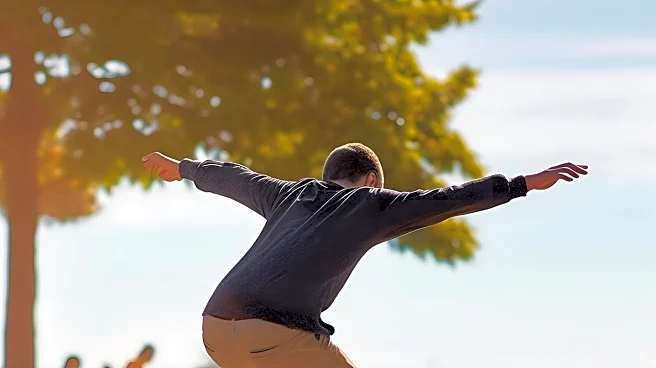What's Happening?
Skateboarding is increasingly recognized as an inclusive activity that transcends age barriers, as demonstrated by the participation of older individuals like Tony Alva, a 68-year-old skateboarding legend, at events such as the Surf Skate Expo in Cornwall. The sport, traditionally associated with youth, is now attracting people of all ages, including those who rediscovered it during the COVID-19 lockdowns. The community is noted for its welcoming culture, allowing individuals from diverse backgrounds to engage in skateboarding, fostering a sense of belonging and support. Dr. Paul O'Connor from the University of Exeter highlights the mental and emotional benefits of skateboarding, emphasizing its calming and spiritual aspects. The rise of women in skateboarding, particularly those over 35, marks a significant shift in the sport's demographics, contributing to its inclusive nature.
Why It's Important?
The growing inclusivity in skateboarding reflects broader societal shifts towards acceptance and diversity in recreational activities. This trend can positively impact public health by encouraging physical activity among older adults, promoting mental well-being, and fostering community engagement. The sport's ability to connect individuals to other creative pursuits like music and art further enriches cultural landscapes. As skateboarding becomes more accessible, it challenges stereotypes and barriers, offering a platform for personal growth and social interaction. The increasing participation of women in skateboarding also highlights progress in gender equality within sports, encouraging more inclusive practices across various athletic disciplines.











